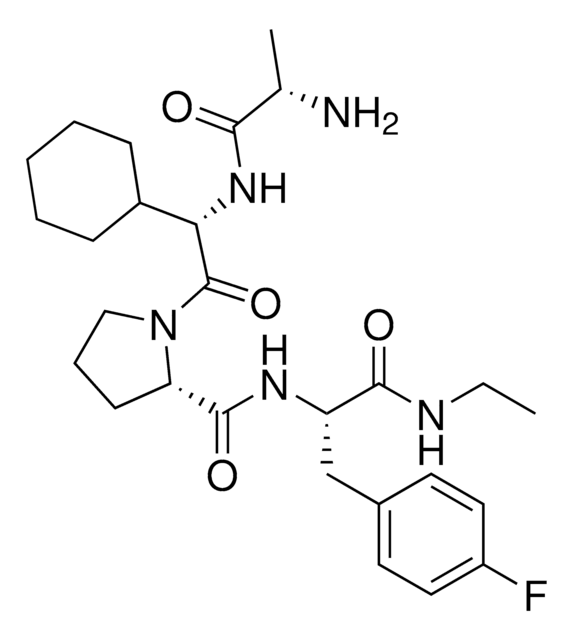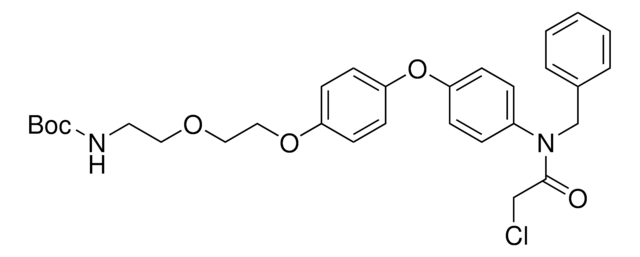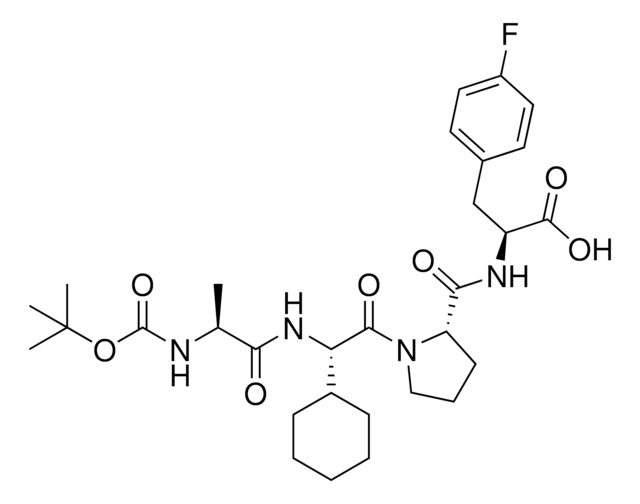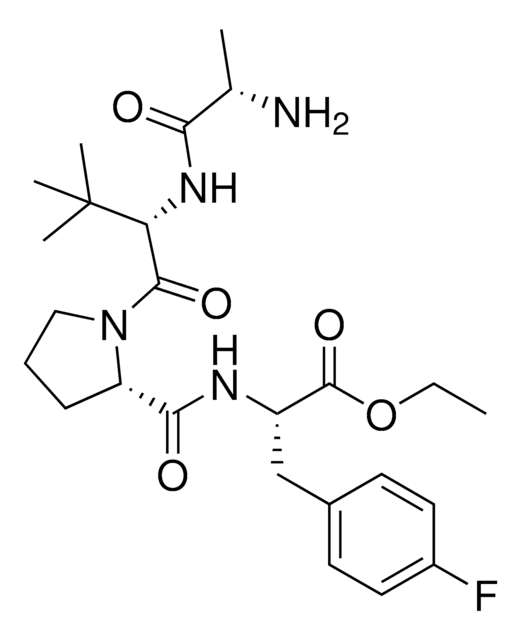919470
CCW16-PEG2-butyl-BocNH
≥95%
別名:
tert-Butyl (6-(2-(2-(4-(4-(N-benzyl-2-chloroacetamido)phenoxy)phenoxy)ethoxy)ethoxy)hexyl)carbamate, Crosslinker-E3 Ligase ligand conjugate, Protein degrader building block for PROTAC® research, RNF4-targeting building block, Template for synthesis of targeted protein degrader
About This Item
おすすめの製品
ligand
CCW16
品質水準
アッセイ
≥95%
形状
liquid
反応適合性
reactivity: carboxyl reactive
reagent type: ligand-linker conjugate
官能基
amine
保管温度
2-8°C
SMILES記法
O=C(CCl)N(CC1=CC=CC=C1)C2=CC=C(C=C2)OC3=CC=C(OCCOCCOCCCCCCNC(OC(C)(C)C)=O)C=C3
アプリケーション
その他情報
Portal: Building PROTAC® Degraders for Targeted Protein Degradation
Covalent Ligand Screening Uncovers a RNF4 E3 Ligase Recruiter for Targeted Protein Degradation Applications
targeted protein degradation
Targeted Protein Degradation by Small Molecules
Small-Molecule PROTACS: New Approaches to Protein Degradation
Targeted Protein Degradation: from Chemical Biology to Drug Discovery
法的情報
関連製品
保管分類コード
11 - Combustible Solids
WGK
WGK 3
引火点(°F)
Not applicable
引火点(℃)
Not applicable
適用法令
試験研究用途を考慮した関連法令を主に挙げております。化学物質以外については、一部の情報のみ提供しています。 製品を安全かつ合法的に使用することは、使用者の義務です。最新情報により修正される場合があります。WEBの反映には時間を要することがあるため、適宜SDSをご参照ください。
Jan Code
919470-VAR:
919470-50MG:
919470-BULK:
最新バージョンのいずれかを選択してください:
資料
タンパク質分解誘導化合物ビルディングブロックは、標的リガンドと共有結合するペンダント基を持つクロスリンカー-E3リガンド複合体です。
Protein Degrader Building Blocks are a collection of crosslinker-E3 ligand conjugates with a pendant functional group for covalent linkage to a target ligand.
ライフサイエンス、有機合成、材料科学、クロマトグラフィー、分析など、あらゆる分野の研究に経験のあるメンバーがおります。.
製品に関するお問い合わせはこちら(テクニカルサービス)



![[4,4′-Bis(1,1-dimethylethyl)-2,2′-bipyridine] nickel (II) dichloride](/deepweb/assets/sigmaaldrich/product/structures/471/091/6faa29b1-bf8a-4d87-90b2-4cc55e082620/640/6faa29b1-bf8a-4d87-90b2-4cc55e082620.png)



![Ir[dF(CF3)ppy]2(dtbpy))PF6](/deepweb/assets/sigmaaldrich/product/structures/982/913/02dd8ddd-6deb-40a0-ab9b-07b18f1abb09/640/02dd8ddd-6deb-40a0-ab9b-07b18f1abb09.png)
